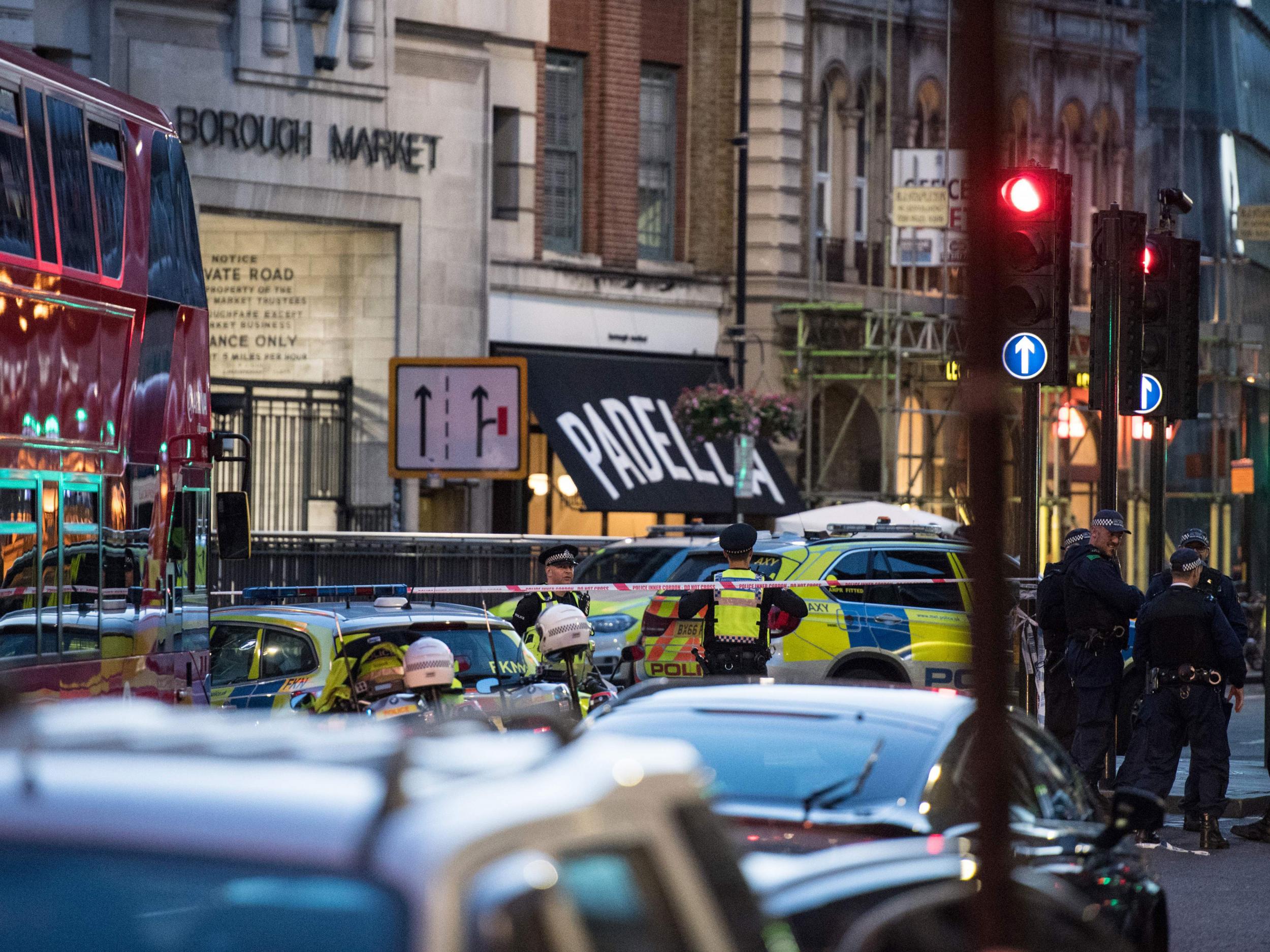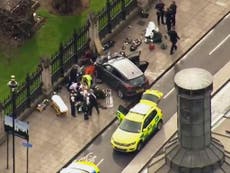For the British public, the threat of terrorism isn't a deathly disease, but an incurable condition we will learn to live with
Urban life will have to change in this new era of terror threats, but Britain has a history of resisting the temptation to sensationalise – we will face these challenges with pragmatism and unity


Even in the midst of chaos and horror, while the police were screaming at pedestrians to run and the dead and injured had yet to be be removed from the streets, there was cause for quiet optimism. All over London, in bars, cinemas and clubs, the night went on as before.
Those reading the news on their phones were not entirely as before, of course. It is still too soon to shrug off these attacks with the insouciance of the battle-hardened veteran, though sadly that day will come.
Yet almost no one rushed to the exits and sped to the safety of home. Although upset and concerned, most continued doing whatever they had been doing, almost as if “keep calm and carry on” long ago seeped out of a poster slogan and into the national DNA.
There can be no victory over the terrorists in choosing not to overreact to each monstrosity, whether as sophisticated as Manchester’s or primitive as in Southwark. These terrorists were dead before there was any reaction. No future terrorist who shares their intent is concerned about the effect of their crimes.
They are no more cowards and losers than heroes or martyrs. They are plain and simple nihilists to whom killing is the be all and, more so, the end all. Sticks and stones won’t hurt the bones of those rendered corpses by police bullets, so why waste bravado on empty words?
But there is a victory for ourselves in adapting to this reality as quickly and un-histrionically as we appear to be doing. The attacks will not stop. The more Isis sees its “caliphate” being swept into the dustbin of history, the more homegrown disciples in Britain will lash out.
In the hours ahead, you may hear someone tell a TV reporter or radio phone-in about the need to “cut out this cancer of terrorism”. That is worse than a platitude. It is a fundamental misunderstanding.
In medical terms, this brand of terrorism is not a cancer. It can neither be cured by surgery nor kill what we are. It has killed individuals, each of whom it is a duty to mourn and a privilege to remember. But to us as a democratic society, this is a chronic condition, like diabetes, we must learn to manage. Theresa May, assuming she remains PM, should understand this better than today’s crudely electioneering tough-guy response suggests.
Whether this is type 1 diabetes like hers, where the sufferer has in no way contributed to the condition, or type 2 brought on at least in part by choices that might have been avoided, is a debate for another time. It is one we need to have, despite the far right screaming treachery whenever one questions the connection between the surge of this insanity and Anglo-American foreign policy. But this is not the day for that.
This is a day, another one, to be heartbroken for the victims, disgusted by the perpetrators, and happy that only the usual suspects of professionally deranged clickbaitism conflate the nihilistic insanity of a minute few with the beliefs of a global religion followed by more than a billion.
We shouldn’t go overboard in congratulating ourselves, as Mancunians or Londoners or British, for not wanting to punish Muslims for these crimes. That is the very least we should expect of ourselves. But we should be relieved that the basic principles of natural justice and common decency remain impervious, for now, to the ravings of Donald Trump and his small but noisy cabal of imitators at home, and be quietly hopeful that the atrocities to come will not change this.
In some ways, urban life will have to change. Like anyone diagnosed with diabetes, city-dwellers will have to adapt to alleviate the symptoms. Security will become more rigorous, armed police more visible, queues for public events more tiresome. But the changes will be constricted to inconvenience so long as we hold our nerve.
This won’t be easy. As I write this, my 20-year-old son pops his head round the door to say he is thinking of going to Camden Market or a gallery near Leicester Square tube station. He notices the involuntary grimace, and though I quickly insisted that a grown man shouldn’t change his plans to assuage a neurotic father, he sweetly decided to take a book to a local park instead.
Every parent of children, every child of parents, every partner of another, will fret a bit more than usual from now about those they love. Some, a very few, will have their worst fears realised.
But unless this country succumbs to a mass collective failure of nerve, as it never did during the Blitz, cities will retain their essential characters and freedoms. That won’t be as a deliberate rebuke to potential terrorists whose willingness to die puts them beyond caring. It will be because this is what people with incurable but manageable conditions do. They take every sensible precaution, dwell on the disease as little as necessary, and get on with the messy business of living as well and pleasurably as they can.



Join our commenting forum
Join thought-provoking conversations, follow other Independent readers and see their replies